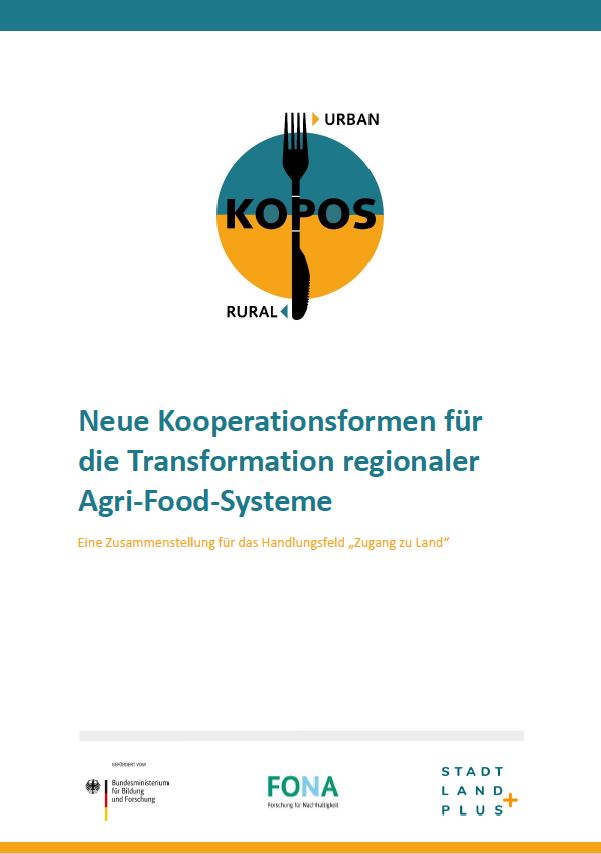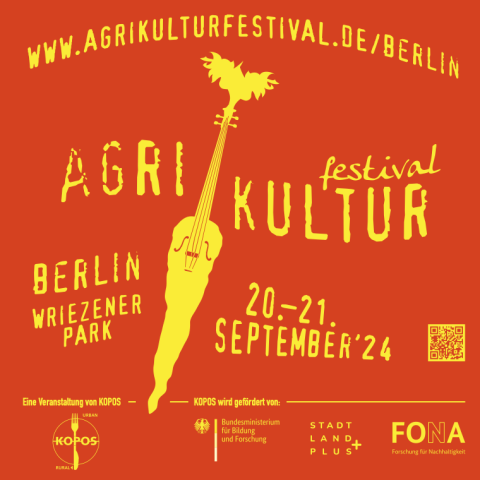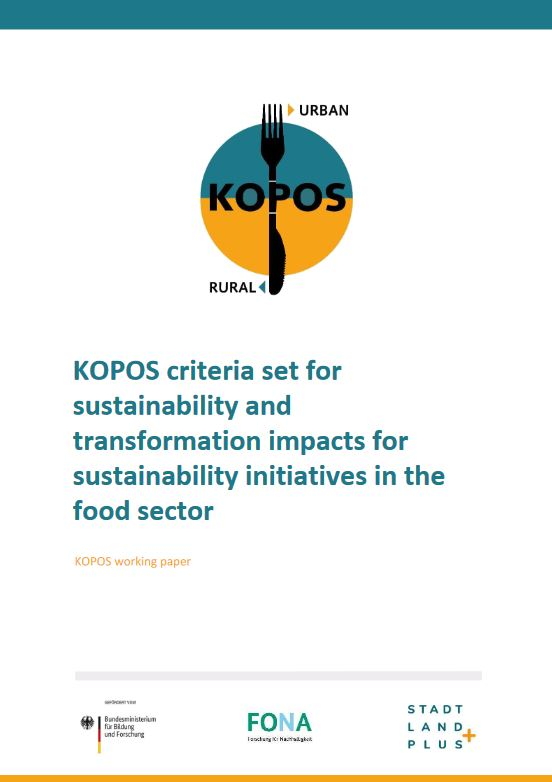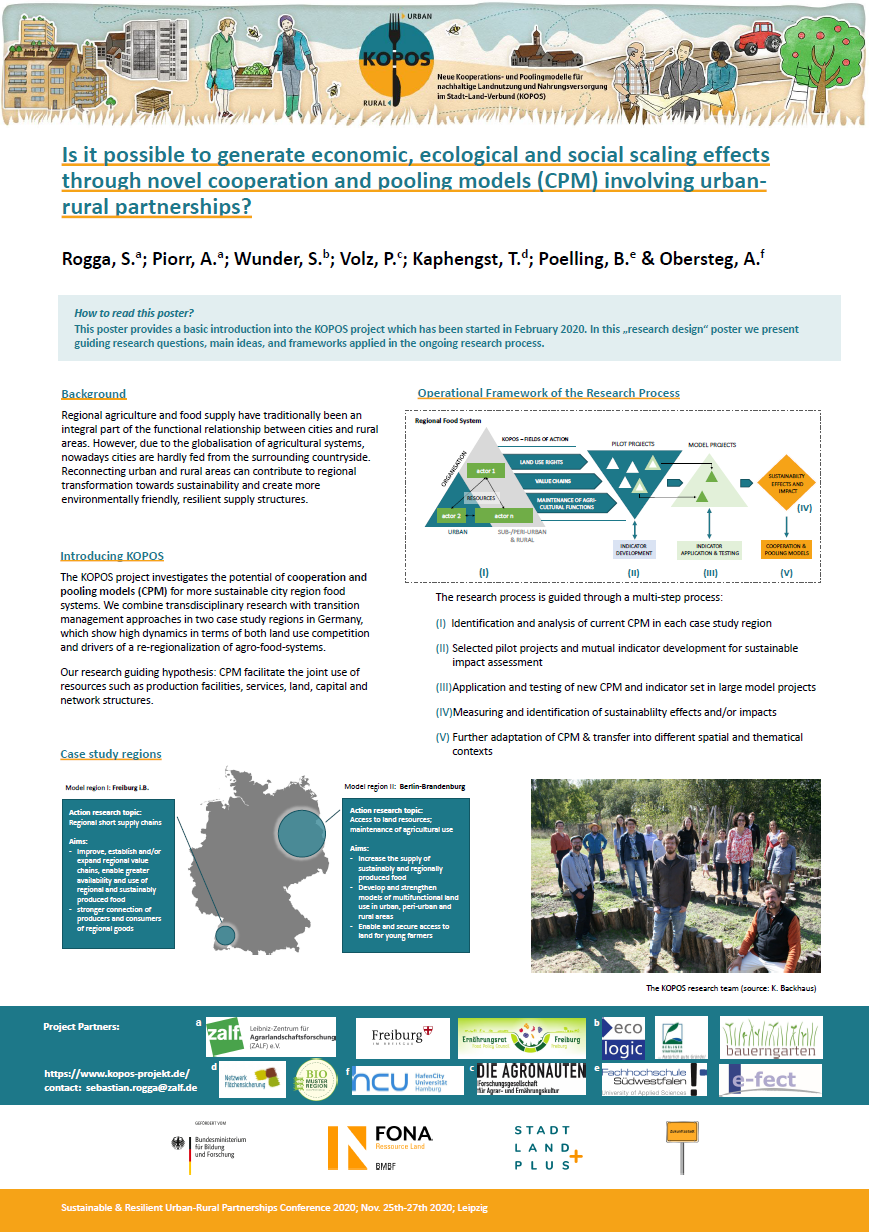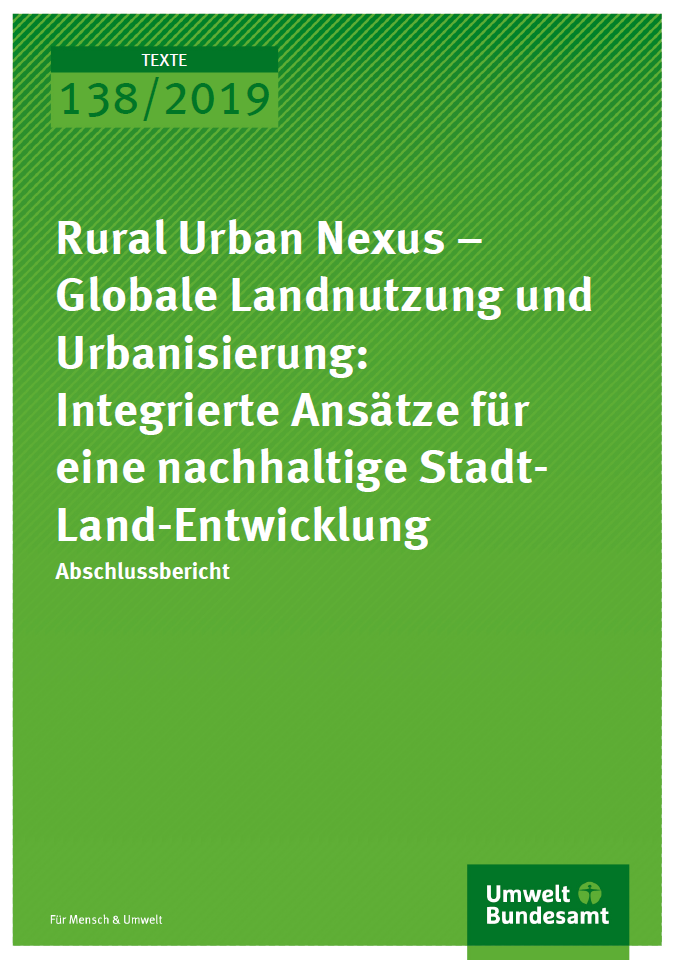KOPOS Launches Research in Transformative Real-world Laboratories
Model projects selected
- News
- Date
-
- Location
- Berlin, Germany
Transformative research projects develop approaches to sustainability challenges and involve relevant stakeholders in the process. Oftentimes there are insufficient resources to put the ideas developed into practice, to test them and to learn from the test run. The "KOPOS" project (New Cooperation for Sustainable Landuse and Food Supply in Urban-Rural Areas), funded by the German Federal Ministry of Education and Research (Bundesministerium für Bildung und Forschung, BMBF) tackles this challenge and breaks new ground.
- Model Project in Freiburg – The Freiburg Wholesale Market Consortium Introduces Itself
- Model Project in Berlin-Brandenburg – "Tiny Farms" Introduces Itself
Innovative and cooperative approaches to solutions for regional challenges are set to be trialed and tested for sustainability effects until fall 2024 on the basis of the model projects, each of which is endowed with 100,000 euros. Their approaches for a more sustainable food supply will be tested in practice and scientifically accompanied by the KOPOS team. While the Brandenburg model project Tiny Farms aims to enable people to start an entrepreneurial business in agriculture and in the cultivation of vegetables by combining a network of small and fragmented plots of land into a virtual large farm, the Freiburg team wants to pool and thus strengthen regional trade structures for small producers of regional (organic) products. To this end, the winning consortium from Freiburg is building up appropriate infrastructures. The model projects present themselves in their portraits on the KOPOS website – it's worth a read!
New pooling structures to strengthen regional value chains in Freiburg
The KOPOS project partners in Freiburg (the research company Die AGRONAUTEN, the Ernährungsrat Freiburg und Region, the City of Freiburg (Environmental Protection Agency) and the Biomusterregion Freiburg) are investigating the lack of short – i.e. regional – value chains for food. Although production and marketing structures for regional products do exist, they are not optimized for direct marketing, but rather for supplying large quantities and volumes that are dictated by wholesalers. By contrast, the potential of many rural producers is not fully tapped in the Freiburg and its region. "So far, there is no market for their surpluses from direct marketing, as the quantities are too small for wholesalers," reports Wolfgang Hees, chairman of the producer association Biogemüse Südwest and partner of the model project in Freiburg.
The Freiburg model project participants aim to pool organically produced food by setting up the corresponding infrastructure at the wholesale market in Freiburg. "So far, the wholesale market pooled regional products from many small producers. There has not been a corresponding pooling structure for organic products on site," says Sabine Fey, the managing director of Großmarkt Freiburg GmbH. "With the KOPOS project, we can now test whether the wholesale market can open up new business areas and address new target groups as a result," says Fey. This infrastructure also opens up new marketing options for businesses switching from conventional goods to organic goods, start-ups and B-stock. The wholesale market's clientele typically comprises small and medium-sized businesses involved in out-of-home catering and retail (such as smaller canteens, restaurants, weekly market traders, daycare centers), which can generate a great deal of leverage for the demand for regional organic food.
The model project is flanked by the municipality of Rheinhausen, which wants to set up a distribution point for the organic products handled at the wholesale market, as well as the social enterprise "nearbuy", which will set up a digital goods and communication platform specifically for Freiburg and its region.
Accessing land through agriculture in Berlin-Brandenburg
A future collaboration between the KOPOS team (coordinated by the Netzwerk Flächensicherung e. V. in cooperation with Berliner Stadtgüter GmbH and ZALF) and the Tiny Farms company will be established in the Berlin-Brandenburg project region, where the aim is to improve access to agricultural land. The young Berlin-based company plans to combine a network of small-scale and fragmented parcels of land which they lease in the region into a virtual large-scale farm and render it competitive by pooling resources.
The key to this business model lies with a workforce which the company trains and equips to become agriculturally entrepreneurial. "We are lowering the high entry barriers to farming, and in doing so, giving people the opportunity to try their hand at farming," says Tiny Farms co-founder Jacob Fels. "In this way, we demonstrate a concrete approach to counteract the acute shortage of personnel, which is especially prevalent in professional vegetable farming," Fels continues. The company thus explicitly addresses people from the urban environment who seek (part-time) employment in vegetable farming or who want to get a taste of the professional field.
So far, the young company, which is very well networked in Berlin's alternative food scene, has developed four Brandenburg micro-areas, each smaller than one hectare, into micro-farms under its own management. The next step for the company, to be piloted as part of the model project, is spinning off to future farmers. "Within the framework of KOPOS, we can give this spin-off a concrete run-through with two young people who already went through our training program last year," says Tobias Leiber, another co-founder of Tiny Farms. The future farmers will receive intensive support from Tiny Farms and will be able to make use of the company's services (e.g. seedling delivery, marketing channels, cultivation planning), depending on their needs and qualifications.



